Alumni Spotlight: Dr. Kade Yaschuk
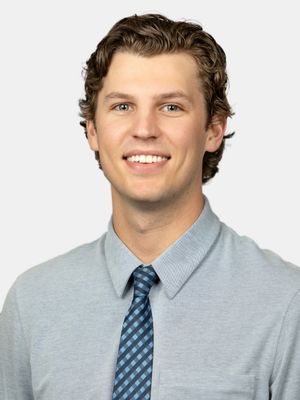
Meet Dr. Kade Yaschuk, a Trinity graduate who recently matched into anesthesiology at UMass Chan Medical School-Baystate, one of the most competitive specialties in medicine. His path to residency began with a foundation in nursing and a determination to pursue medicine despite setbacks in the Canadian admissions process. At Trinity, Kade found the close-knit support, leadership opportunities, and clinical training he needed to thrive. Today, he reflects on that journey with gratitude and shares his insights with future medical students following in his footsteps.
Where are you from, and what’s your academic background? I was born and raised in the small town of Moose Jaw, in Saskatchewan, Canada. For undergrad, I pursued a Bachelor of Science in Nursing in Saskatoon, SK.
What brought you into medicine? Growing up, I was exposed to the healthcare field through my mom, who worked as a pediatric nurse. From high school onward, I knew I wanted to pursue a career in medicine. During that time, I joined a pre-health professions club and had the opportunity to shadow an anesthesiologist in the operating room. Interestingly, I eventually chose to specialize in the same field. I was drawn to anesthesia because no two days looked the same, and I appreciated the diversity of career paths available within healthcare.
Understanding how competitive medical school admissions can be, I decided, after thoughtful conversations with my family, to pursue nursing first. I saw it as a way to gain hands-on experience and a strong foundation in patient care. Working as a nurse for a few years before applying to medical school gave me invaluable experience. It helped me feel confident at the bedside, strengthened my communication skills with patients, and provided a solid background in clinical knowledge. That foundation proved incredibly helpful throughout my time in medical school.
Why did you choose Trinity, and what ultimately helped you make the decision? After receiving my second rejection letter from the University of Saskatchewan, I was crushed. I genuinely thought that would be the year I got in, and the disappointment hit hard. I had already taken the MCAT twice and had been working as a registered nurse in the emergency department for two years at the time, but I knew deep down that nursing wasn’t where my passion lay; I wanted to be a physician. It was emotionally challenging to work in an environment where, every day, I was collaborating with the very professionals I aspired to become. That sense of longing made it even more difficult to consider going through another application cycle.
Despite the setbacks, I remained committed to my goal of becoming a physician. I was fortunate to find my path forward at Trinity, where I was given the opportunity to pursue my medical education.
How did you hear about Trinity? I’m not sure if I had filled something out online, but I received a call from a Trinity representative who introduced me to the school, which I had never heard of at the time. I did some research, spoke with my parents about it, and decided to apply. Within a couple of weeks, I was invited for an interview. I reached out to Trinity alumni, including Dr. Hannah Moore and Dr. Nazia Sharfuddin, a Canadian graduate, both of whom had very positive experiences and encouraging things to share. It seemed like a great opportunity, so I decided to take the leap.
Now, being on the other side of that journey, I really enjoy speaking with prospective students. It feels like a full-circle moment. Looking back, it’s surreal how quickly everything changed. I went from facing rejection to receiving an acceptance within just a few months.
How well do you feel that Trinity prepared you for the Match? I believe Trinity does an excellent job preparing students for the Match. In the months leading up to it, we had several informational webinars with Dr. Zubrow, who was then the Senior Associate Dean for Clinical Clerkships. That role has since been taken over by Dr. Manahan, the current Dean of Curriculum and Clinical Clerkships. Having active involvement from faculty was incredibly valuable; they provided clear guidance on what steps to take and when to take them. The deans were always approachable and responsive to questions, and upperclassmen were equally supportive, offering advice and sharing their experiences.

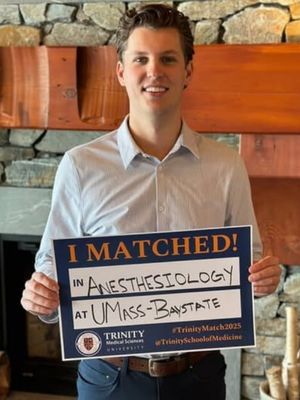
Where did you match? I matched into an anesthesiology residency at UMass Chan Medical School-Baystate.
What is a typical day like as an Anesthesiology resident? Residency is interesting. The transition from being a med student in March to having to make calls in July is stressful. During my intern year, I’m basically off-service anesthesia the entire year. It’s a built-in transitional year, so I’m all over the hospital in four-week blocks. Month to month, my typical day can look quite different. In my first month, I started in the adult emergency department, which is a Level I Trauma Center. It was very eye-opening. That was stressful, but super fun. The learning curve is unbelievably steep each day. With the exposure to the amount of medicine you’re getting to see and learning from colleagues, attendings, fellow residents, and senior residents, it’s great in that regard. Right now I’m in the pediatric emergency department.
What has been the most surprising thing about residency so far? It was probably my fifth shift in the emergency department, and it happened to fall on a Wednesday, which is an academic half-day for the ED residents. That meant the department was quiet, with just me and the attendings on the floor, which was intimidating enough on its own. During the shift, a resuscitation came in, so the attendings were tied up managing that case. While they were occupied, a nurse approached me and asked, “Hey, are you Dr. Yaschuk?” I hesitated for a second and said, “Uh, yeah, I guess.” She told me there was a patient with a heart rate in the 30s who wasn’t looking well.
I went in to assess the patient, and it was clear they were in bad shape. I ordered an EKG and some labs right away. One of the most important parts of being a good resident is knowing when to ask for help, so I stepped out and pulled one of the attendings from the resuscitation. He actually thanked me for getting him, which was reassuring. Looking back, I probably looked like a deer in headlights to that nurse.
Now that it’s September, I’m starting to feel more comfortable with the day-to-day workflow—charting, how the department runs, and how to manage my time. It’s been a steep learning curve, but it’s also been a lot of fun.
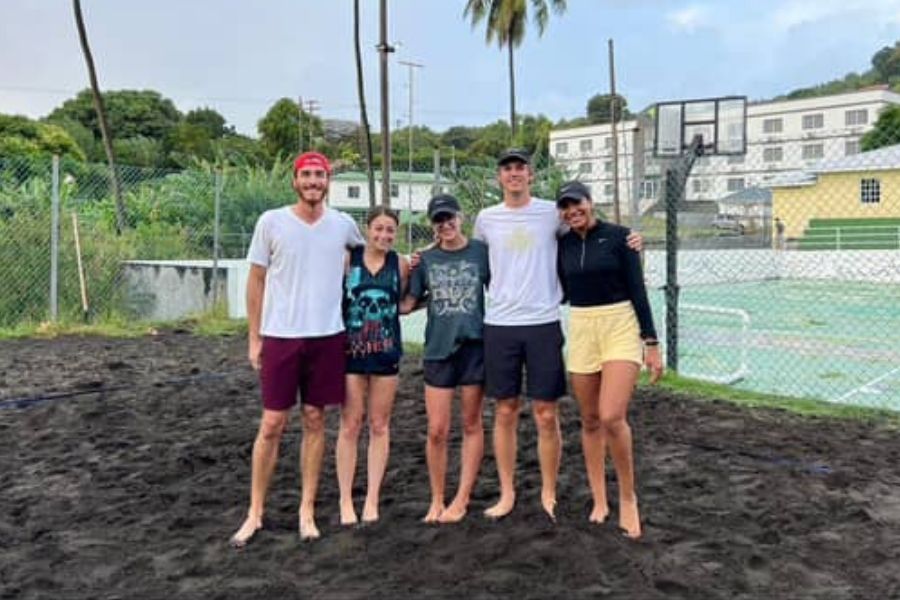

Was Trinity a good choice for you? Yes, I think Trinity was the only choice. Trinity was an excellent choice for so many reasons. It’s a smaller program, and I’m from a small town in Saskatchewan who decided to move miles away for medical school. Going to an island where you’re one of 50 as opposed to one of 800 is a huge benefit to me for who I am as a person. I felt like I instantly had a second family on the island because all those other students were on the same boat as me. Having smaller class sizes helped us get closer faster, and you have the opportunity to get to know your faculty. There were countless times when I’d be waiting in the lunch line chatting with a professor, or they’d be on the basketball court. You see your faculty around campus and the island, and they know you by name, not just by a number.
For clinicals, having a home site in Georgia is nice because we have all the administration there. Seeing our deans on campus is hugely beneficial. Having one area where you can do all your core rotations instead of moving around all the time is great.
Did you feel supported throughout your education at Trinity? Yes. From day one, you’re assigned a mentor on the island, and after your first couple of exams, you’ll have a meeting with them, they’ll motivate you, see what they can do to support you, and work on a study plan with you. That aspect speaks volumes about Trinity’s involvement with the students. They’re super willing and super helpful and want you to succeed. Having the deans and administration present and involved in Georgia was also super beneficial.
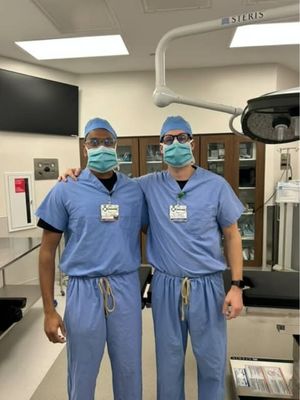
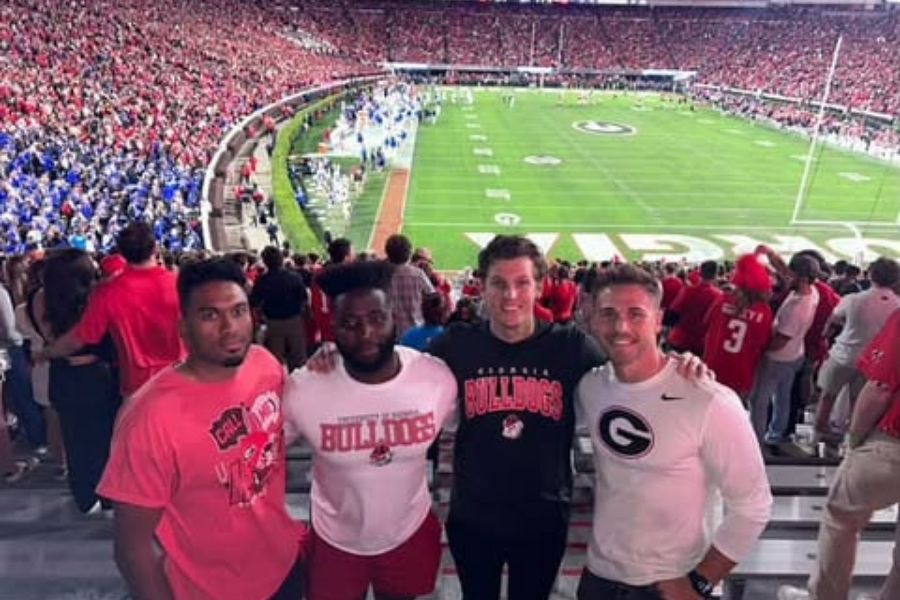
What was the transition like from where you moved from to the island and then to Georgia? I flew to Toronto and then on to Barbados. While waiting, I noticed a guy who looked just as nervous as I felt, so I struck up a conversation, and that’s how I met Rosh. We clicked right away and exchanged numbers. By the time we landed in St. Vincent, it was already dark, so we got settled into our rooms. The next day, we met up again, and from that point on, we’ve been best friends. We spent a lot of time together on the island since we lived right next to each other, and later, we were roommates in Georgia. We still talk every day. Honestly, having him there made the whole transition so much easier.

.jpg)
Were you active in any school organizations? Rosh and I started the Canadian Student Society on the island, and then we ended up becoming part of the Student Government Association, so we had other students take over our roles to keep the organization alive. I was the SGA’s Chief Justice on the island and in Georgia.
What did you think about the early clinical experiences on the island? It’s super interesting rotating at Milton Cato Hospital because a lot of the doctors there still have the art of medicine, and they put so much importance on the physical exam and history taking because they don’t have certain resources. Being able to have those strong clinical skills of taking a really thorough history and doing a physical exam is important. In the U.S., you would just run someone under a CT scanner, but on the island, you have to do a full physical exam and trust those skills. I think it was a great experience, and I loved learning from the doctors there. I remember I saw a case of Leptospirosis for the first time on the island, and now I can appreciate how cool that is.
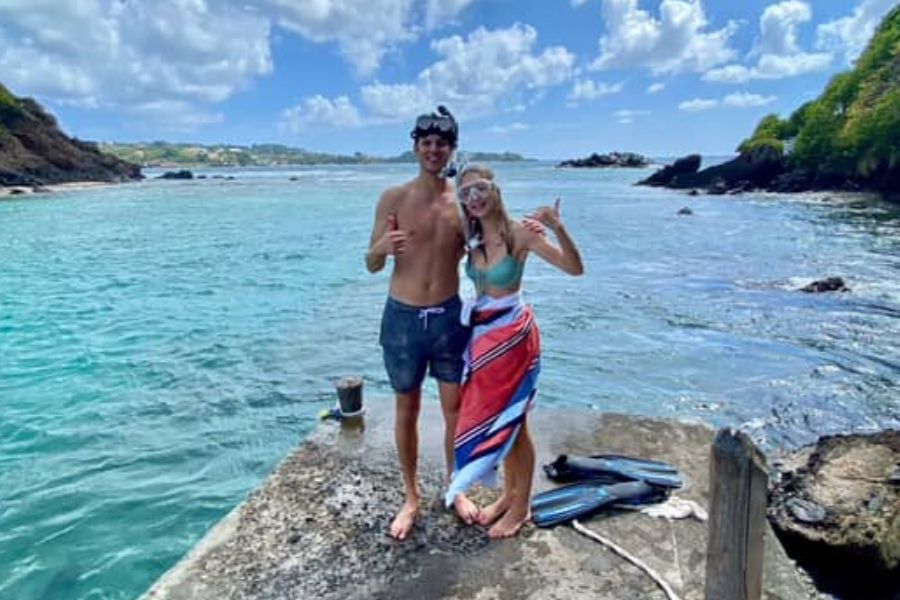
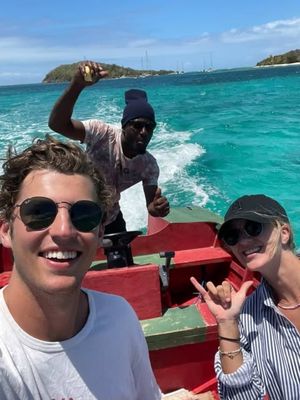
Do you have any stand-out memories, stories, or experiences regarding your time at Trinity? Absolutely! During our first week on the island, about 80 of us took a catamaran trip to the Tobago Cays, and it was such a blast. There was a guy selling fresh lobster right on the beach, and I bought a whole one for just $20 USD. It was incredible. I ended up getting sunburned from that trip, so on the first day of med school, I had to sit in class with my hood up. It was totally worth it, though.
What is the best advice you could share with a prospective Trinity student? I think you have to take the leap and trust yourself. Trinity does a great job at giving you all the resources and putting everything in place for you to be successful. However, there’s still a component from the student. If you’re willing to put in the work and time, I think a Caribbean med school is fine, but Trinity is the best, and you should definitely take that opportunity and trust yourself to put in the work and become a doctor.
If you’re interested in learning how Trinity can support your dream of becoming a doctor, we invite you to reach out to our admissions team today! Contact us here.




